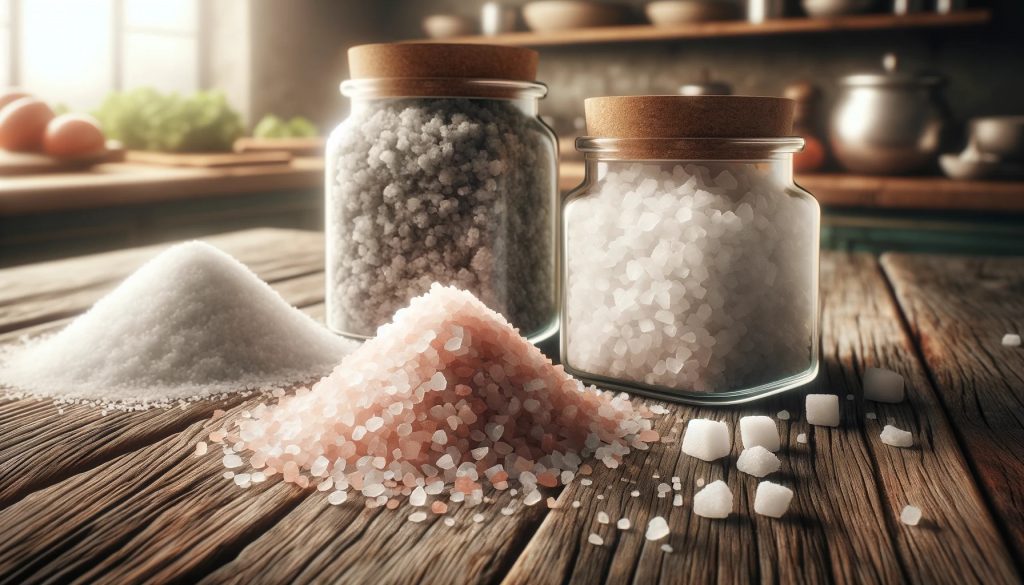Celtic sea salt, renowned for its purity and mineral richness, has gained popularity among health-conscious consumers in the UK. This article delves into the origins of Celtic sea salt, its unique properties, health benefits, culinary uses, and why it has become a staple in many British kitchens.
Origins and Production
Celtic sea salt is harvested from coastal regions in Brittany, France, and other parts of the Celtic Sea. Unlike refined table salt, which undergoes extensive processing that strips away natural minerals, Celtic sea salt is harvested through natural evaporation methods. Seawater is channeled into shallow clay ponds, where it is exposed to sunlight and wind. Over time, the water evaporates, leaving behind crystallized sea salt infused with essential trace minerals.
Unique Properties and Mineral Content
What sets Celtic sea salt apart is its rich mineral profile. It contains a spectrum of minerals such as magnesium, calcium, potassium, and zinc, which are essential for maintaining proper hydration, electrolyte balance, and overall health. These minerals are present in naturally occurring ratios, contributing to the salt’s distinctive flavor and nutritional benefits.
Health Benefits
1. Electrolyte Balance: The mineral composition of Celtic sea salt supports electrolyte balance, crucial for hydration and nerve function. It helps regulate fluid levels within the body, making it a preferred choice for athletes and individuals leading active lifestyles.
2. Trace Minerals: Unlike refined salt, Celtic sea salt retains beneficial trace minerals that support various bodily functions, including bone health, muscle function, and immune system resilience.
3. Lower Sodium Content: While Celtic sea salt is primarily sodium chloride like table salt, its larger crystal size may mean that less salt is needed to achieve the desired flavor, potentially reducing overall sodium intake.
Culinary Uses
In British cuisine, Celtic sea salt is prized for its flavor-enhancing properties and versatility. It is used to season a wide range of dishes, from traditional fish and chips to contemporary salads and desserts. Chefs and home cooks appreciate its delicate, briny taste, which enhances the natural flavors of ingredients without overpowering them. Sprinkling a pinch of Celtic sea salt on dishes just before serving can elevate the dining experience, adding a hint of complexity and depth.
Sustainability and Ethical Considerations
The harvesting of Celtic sea salt typically follows sustainable practices that prioritize environmental stewardship and ecosystem preservation. Traditional harvesting methods minimize ecological impact, utilizing natural evaporation processes and avoiding the use of harsh chemicals or additives. For consumers in the UK concerned with sustainability, choosing Celtic sea salt often aligns with their values of supporting environmentally responsible practices.
Incorporating Celtic Sea Salt into Daily Life
1. Cooking and Baking: Use Celtic sea salt as a finishing salt to enhance the flavor of roasted vegetables, grilled meats, and freshly baked bread.
2. Seasoning: Sprinkle Celtic sea salt over salads, soups, and pasta dishes to add a burst of natural flavor and texture.
3. Health Tonics: Some individuals use Celtic sea salt in homemade electrolyte drinks or wellness tonics to replenish minerals after exercise or during periods of hydration needs.
Where to Find Celtic Sea Salt in the UK
Celtic sea salt is available through specialty food stores, health food shops, and online retailers across the United Kingdom. It is offered in various forms, including coarse crystals, fine grains, and flakes, catering to different culinary preferences and applications.
Conclusion
Celtic sea salt stands out not only for its mineral-rich composition and culinary versatility but also for its appeal to consumers seeking natural, minimally processed alternatives to conventional table salt. In the UK, where culinary traditions blend with modern health-conscious lifestyles, Celtic sea salt has found a niche as a premium ingredient that enhances flavor while offering nutritional benefits. Whether used in everyday cooking or as a gourmet finishing touch, Celtic sea salt continues to enrich the culinary experiences of British households, reflecting a growing appreciation for quality, sustainability, and holistic well-being.
